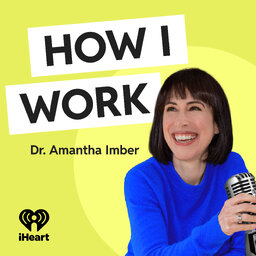Quick Win: Tom Boyd's counterintuitive approach to making life-altering decisions
Former AFL star Tom Boyd made headlines when he walked away from a multi-million dollar contract at the peak of his career. Tom reveals the story behind his big decision and the life-changing advice that guided him through it.Dive deep into Tom's journey as he shares:
- 🧠 The counterintuitive approach to making life-altering decisions
- 🏈➡️📚 How he navigated the transition from professional athlete to author and businessman
- 🧘♂️🏆 His candid insights on mental health in professional sports
- ⏳🔄 The power of patience and self-reflection in career pivots
Whether you're facing a major life decision or simply curious about the inner workings of an elite athlete's mind, Tom's raw honesty and hard-won wisdom will leave you inspired to reassess your own path.
Listen to the full Interview with Tom here.
My new book The Health Habit is out now. You can order a copy here: https://www.amantha.com/the-health-habit/
Connect with me on the socials:
Linkedin (https://www.linkedin.com/in/amanthaimber)
Instagram (https://www.instagram.com/amanthai)
If you are looking for more tips to improve the way you work and live, I write a weekly newsletter where I share practical and simple to apply tips to improve your life. You can sign up for that at howiwork.co
Visit https://www.amantha.com/podcast for full show notes from all episodes.
Get in touch at amantha@inventium.com.au
Credits:
Host: Amantha Imber
Sound Engineer: Martin Imber
Episode Producer: Rowena Murray
In 1 playlist(s)
How I Work
You know those annoyingly successful people who seem to have it all figured out? Time to steal their…Social links
Follow podcast
Recent clips

BEST OF: I burnt out completely last year. This is how I recovered.
27:41

BEST OF: The People-Pleasing Trap: How Laura Henshaw escaped it (and how you can too)
35:19

BEST OF: Sahil Bloom on building a scoreboard that reflects what matters
37:07
 How I Work
How I Work